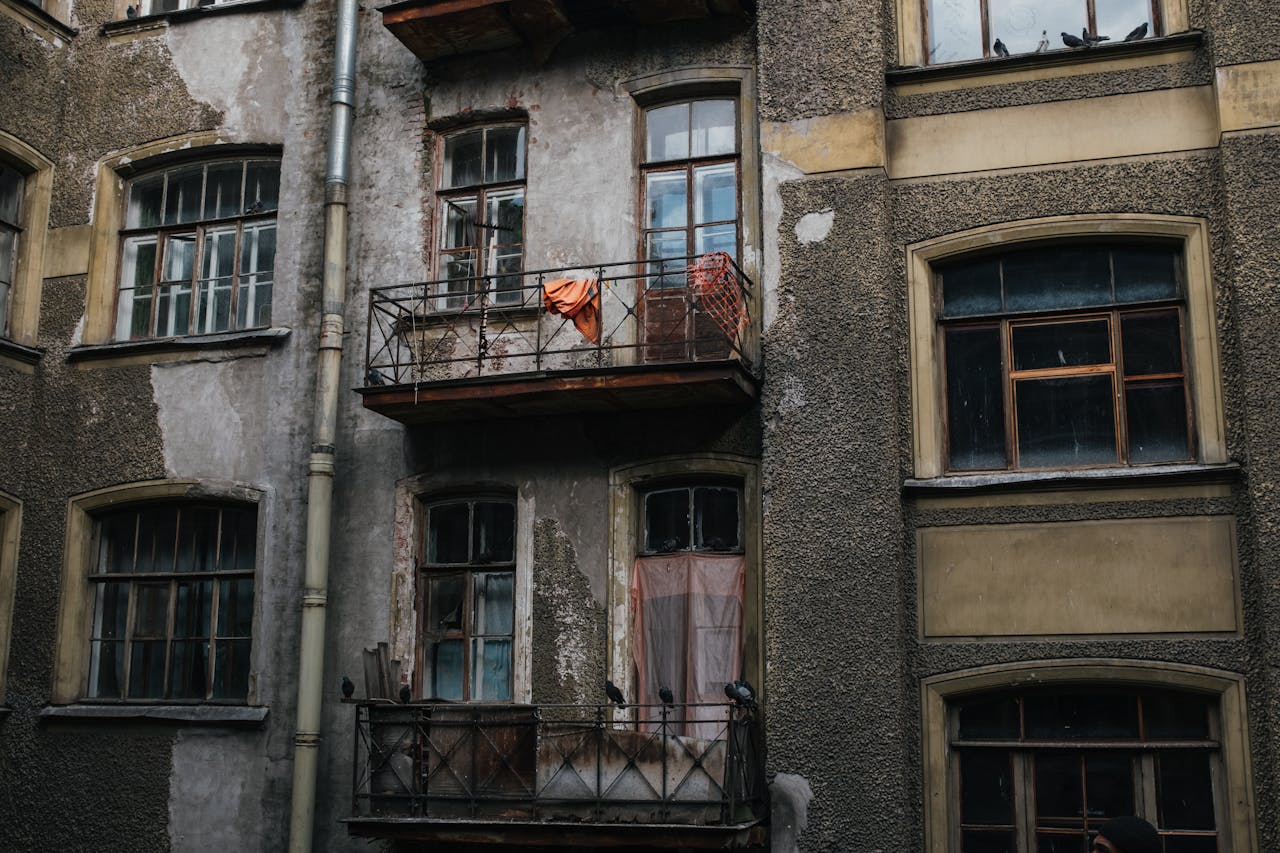
Some people buy a home expecting its value to rise over time. But not every neighborhood is set up for growth. If you’re thinking about buying a house, you need to know why some areas just don’t appreciate. This matters because your home is likely your biggest investment. If you buy in the wrong place, you could lose money or miss out on better opportunities. Understanding what holds certain neighborhoods back can help you make smarter choices. Here’s what you need to watch for if you want your investment to grow.
1. High Crime Rates
Crime is one of the biggest reasons a neighborhood’s value stays flat or even drops. People want to feel safe where they live. If an area has a reputation for theft, violence, or vandalism, buyers and renters look elsewhere. Insurance costs go up, and fewer businesses want to open nearby. Even if you find a bargain, it’s hard to sell later. You can check crime statistics for any area using resources like NeighborhoodScout or local police websites. If crime is high and not improving, property values are unlikely to rise.
2. Poor Schools
Schools matter, even if you don’t have kids. Good schools attract families, and families drive demand for homes. If a neighborhood has underperforming schools, fewer people want to move there. This keeps prices low. School ratings are easy to find online, and they’re a key factor for many buyers. If test scores and graduation rates are low, it’s a red flag. Even if the homes look nice, poor schools can drag down the whole area’s value.
3. Lack of Local Jobs
People want to live near work. If a neighborhood is far from job centers or has few local employers, demand drops. Long commutes are a turnoff. If major employers leave or the local economy struggles, people move away. This leads to empty homes and falling prices. Before buying, look at the job market in the area. Are new businesses opening, or are companies shutting down? A weak job market means weak home values.
4. Environmental Problems
Flood zones, pollution, and other environmental issues can keep a neighborhood from growing. If an area floods often, insurance costs go up, and repairs are constant. Pollution from factories or highways can make people sick and drive them away. Even things like noise from airports or train tracks can hurt property values. You can check flood maps and environmental reports before you buy. If the risks are high, prices may never rise.
5. Poor City Services
Trash pickup, street repairs, and public safety all matter. If a city doesn’t invest in its neighborhoods, people notice. Broken streetlights, potholes, and slow emergency response times make an area less appealing. Over time, this neglect adds up. People move out, and new buyers stay away. If you see signs of poor city services, think twice before buying. It’s hard for values to rise when basic needs aren’t met.
6. Too Many Rentals
A high number of rental properties can keep values down. Renters move more often than owners, so there’s less stability. Some landlords don’t maintain their properties, which hurts the whole neighborhood. If investors buy up homes to rent out, it can change the feel of the area. Lenders may also be less willing to finance homes in places with lots of rentals. If you want your home to grow in value, look for areas with more owners than renters.
7. No Community Investment
Neighborhoods need investment to grow. This means new parks, updated schools, and better roads. If you don’t see any signs of improvement, that’s a problem. Areas that stay the same year after year often get left behind. Look for places where people care about their community. Are there local events, clean parks, or new businesses? If not, values may stay flat.
8. Oversupply of Homes
If there are too many homes for sale and not enough buyers, prices drop. This can happen if builders overdevelop or if people are moving out faster than new residents arrive. An oversupply means sellers have to compete, often by lowering prices. Before buying, check how many homes are for sale in the area. If the market is flooded, it’s a sign that values may not rise anytime soon.
9. Bad Reputation
Sometimes a neighborhood just has a bad reputation. Maybe it’s known for crime, poor schools, or something else. Even if things improve, it can take years for people to change their minds. A bad reputation keeps buyers away and makes it hard for values to rise. Talk to people who live in the area and read local news. If the reputation is bad and not improving, think carefully before buying.
10. Poor Transportation Options
People want to get around easily. If a neighborhood has few public transit options or is far from highways, it’s less attractive. Long commutes and traffic jams turn buyers off. Good transportation links can boost values, but poor ones hold them back. Check bus routes, train stations, and road access before you buy. If it’s hard to get in and out, prices may stay low.
What This Means for Your Investment
Not every neighborhood will increase in value. The reasons above illustrate why some areas remain stagnant. If you want your home to be a good investment, look beyond the price tag. Check crime rates, schools, jobs, and city services. Pay attention to the local economy and community investment. Use tools like Zillow Research to track trends. The right neighborhood can help your money grow, but the wrong one can hold you back.
Have you ever bought a home in a neighborhood that didn’t increase in value? What did you learn from the experience?
Read More
Curb Appeal Doesn’t Have to Be Expensive
11 Signs Your Neighborhood Might Be at Risk for Crime—and What to Do About It







